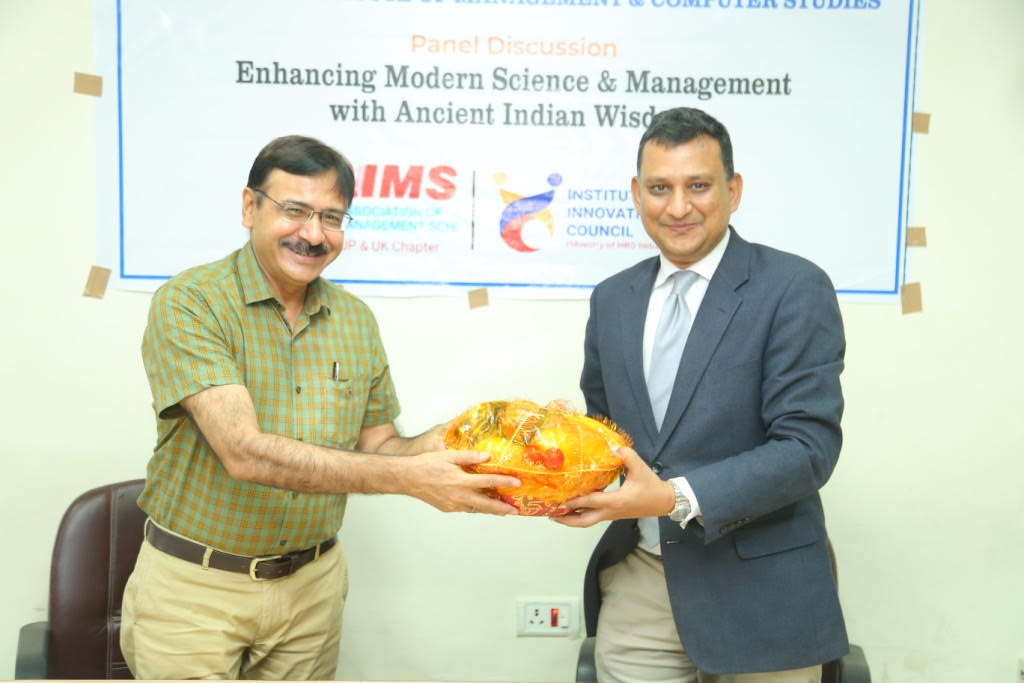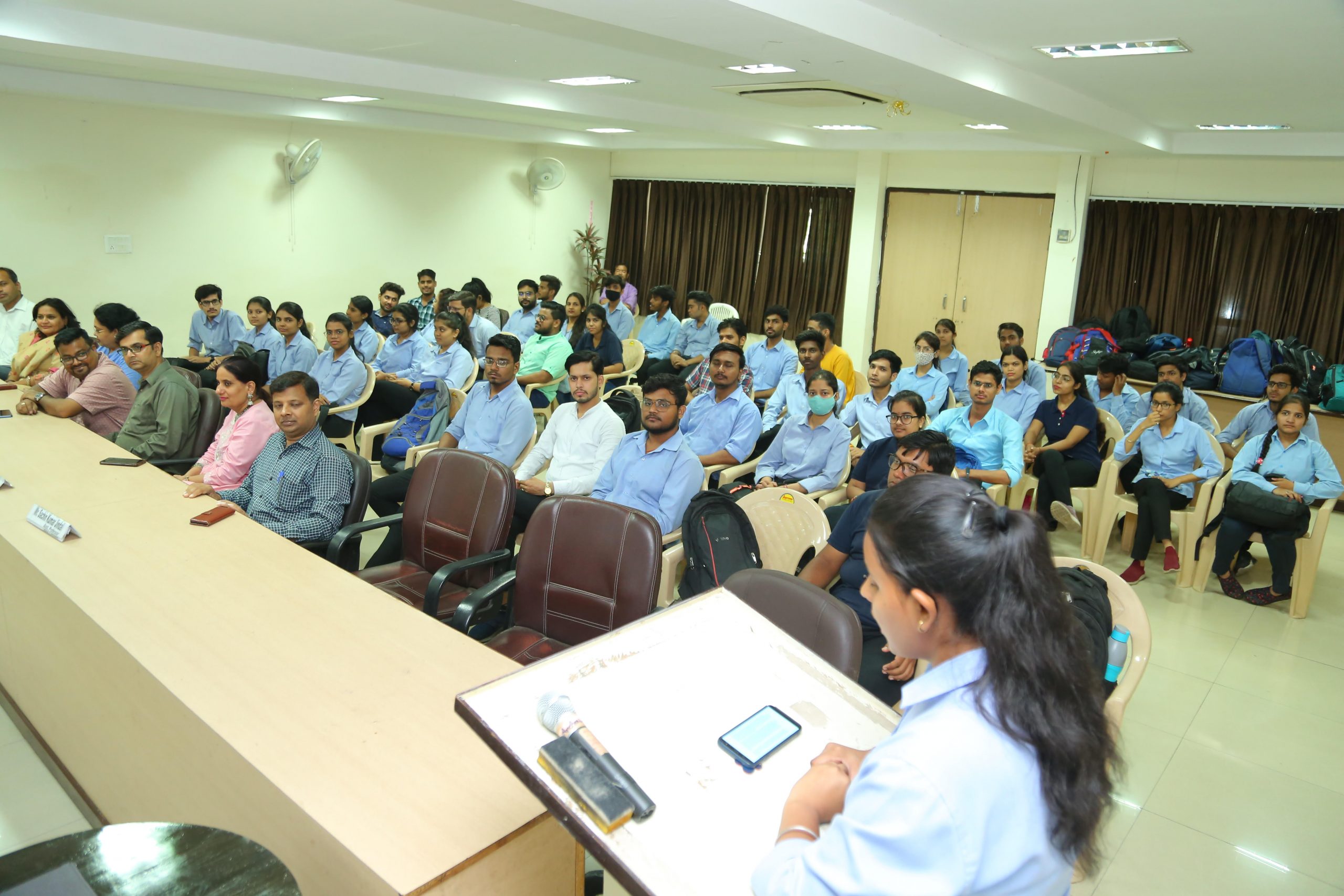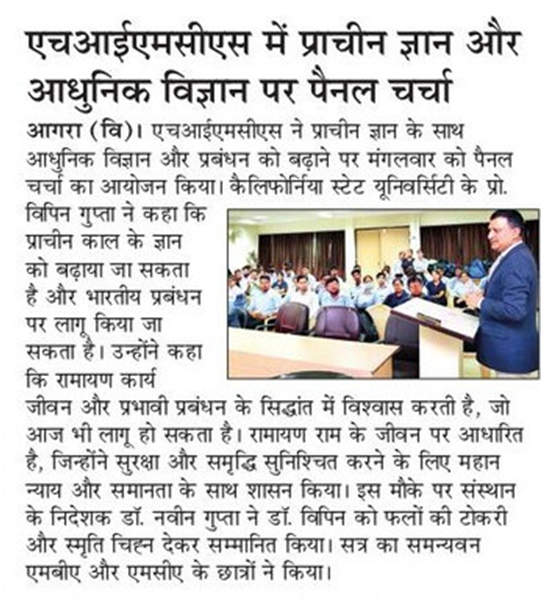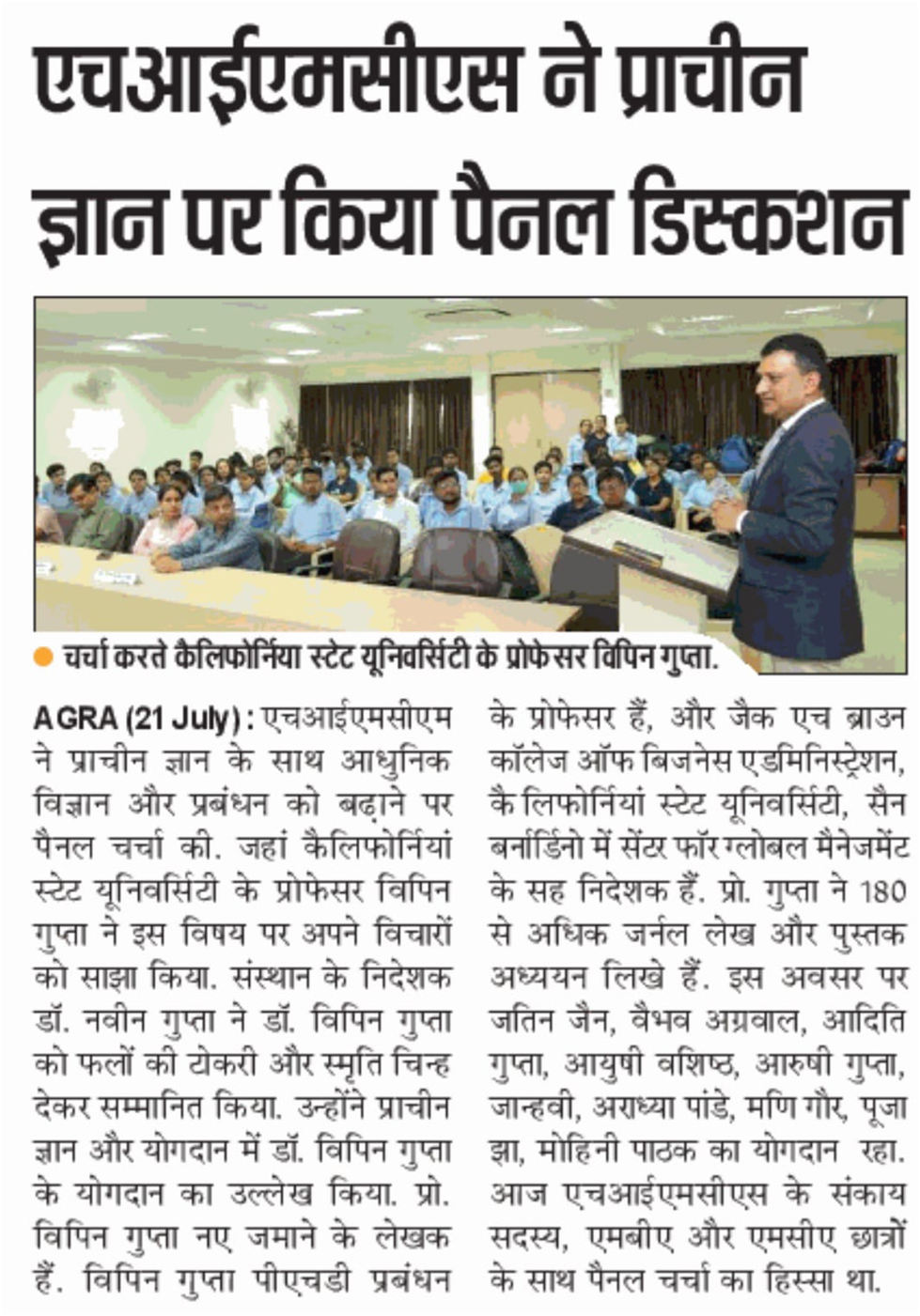Panel Discussion On Enhancing Modern Science And Management With Ancient Wisdom

HIMCS has organized one panel discussion on Enhancing Modern science and management with ancient wisdom where in Prof (Dr.) Vipin Gupta from California State University shared his vast knowledge on this topic. In the beginning, Dr. Naveen Gupta- Director of the institute felicitated to Dr. Vipin Gupta with a fruit basket and memento. He mentioned Dr. Vipin Gupta’s contribution in ancient wisdom and contribution. Prof Vipin Gupta is a new-age author. He has a unique level of clarity about reality. He is a master of manifesting the truth beyond what is apparent phenomenological. His work shows how our actions are reactions to voids in our consciousness about reality.
Dr. Vipin Gupta, Ph.D., is a professor of management and co-director of the Center for Global Management at the Jack H. Brown College of Business and Public Administration, California State University, San Bernardino. Professor Gupta has authored more than 180 journal articles and book chapters, including in leading journals such as Journal of Business Venturing, Family Business Review, Research in Organizational Behavior, Asia-Pacific Journal of Management, Multinational Business Review, Journal of World Business, Advances in Global Leadership, and Management Review.
He said that today the wisdom of ancient times can be extended and applied to Indian management problems and helpful in adjusting western theories in Indian settings. We act when we wish to know our reality. Our actions are physical events with biological effects and chemical sequences. They generate organic resonances of the reality we illuminate with our conscious actions and inorganic dissonances of the reality we destroy with our psychological reactions. Organic resonances form the molecules perpetuating the reality we create at each moment. Inorganic dissonances transform the molecules into the atoms that manifest the reality of our knowing at a moment. Every moment we make our knowledge a part of our subconscious mind. Our subconscious mind reproduces our actions in reaction to the entropy in our conscious knowing that we are the cell energizing the reality.
We substitute the reality of entropy with an illusion of God knowing what we don’t. For scientists, that God is Einstein. Everyone else complements the illusion of the social, general God with the imagination of their personal, special God. The reality of both general and special Gods is relative to the institutional, parabolic God that a dominant religion institutionalizes. We are living in an age where science is the dominant religion. Unless you have faith in Einstein, you are not fit to be called a scientist and indeed a rational human.

How scientific is the reality that makes you a hero if you reference Einstein as the authority substantiating your knowing and a zero otherwise? Since the present paradigm of science is not scientific, Vipin Gupta is on a quest to discover the metaphysics of physical sciences and illuminate the dynamics transcending the limits of known reality. Many themes in the vedic literature helps to achieve the central themes of Karma (Creation, Action, Work-Life), Bhakti (Devotion, Commitment, Loyalty), and Jnana (Knowledge, Understanding, Wisdom) and helps to reach objectives such as 1) Inspire employees to excel in work 2) Enhance employee commitment to the organization 3) Use knowledge to achieve business excellence in a very unique way by integrating it with spiritual development of an Individual.
Ramayana believes in the principle of work life and effective management which can be applicable even today. Ramayana is based on the life of Rama, who ruled with great justice and equity to ensure protection and prosperity. In the Ramayana lord Rama were given the title of “Maryada purushattam” he set an example of effective governance what we often called Rama Rajya for managers or decision makers. He suggests that in the management everyone is answerable to the public, superiors, subordinates, shareholders, stakeholders, board of directors to ensure transparency for the day to day operation of the organization. Lord Rama followed the path of ethics and set an example for Kings that duty comes before his personal comfort. The Mahabharat also provides guidance to the corporate world on the various lessons of management. It teaches us how we can transform our weakness into strength.
The coordinators for the session were MBA and MCA students among them Jatin Jain, Vaibhav Agarwal, Aradhya Pandey, Mani Gaur, Pooja Jha, Aditi Gupta, Ayushi Vashishtha, Arushi Gupta, Janhvi Saraswat, Mohini Pathak’s contribution were noteworthy. Today, Faculty members of HIMCS were also part of a panel discussion along with all the MBA and MCA students.


